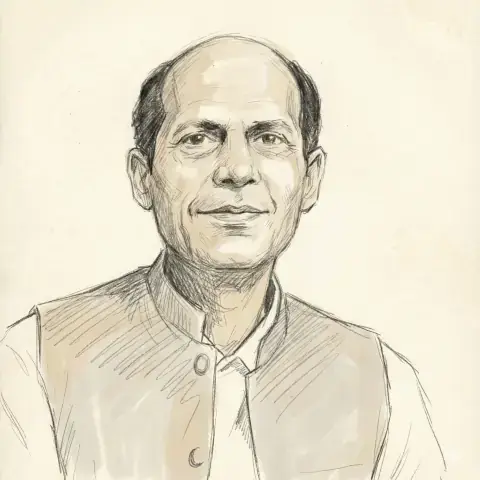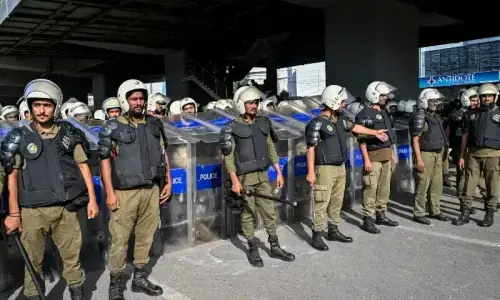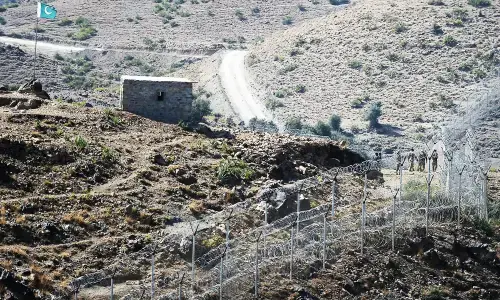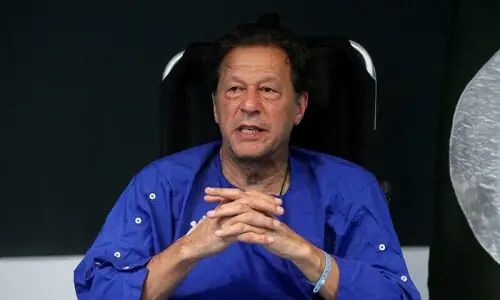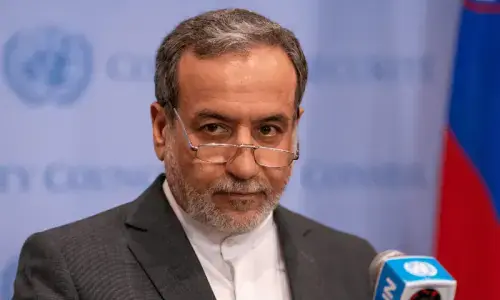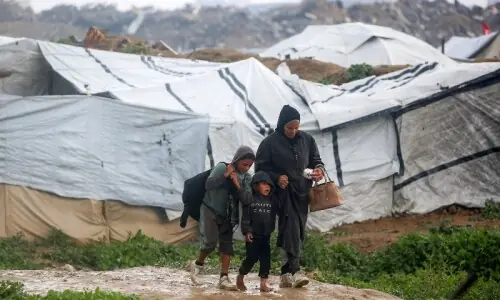ISLAMABAD: Interior Minister Sheikh Rashid Ahmed has been tasked with preventing the students of religious seminaries from participating in the opposition’s Pakistan Democratic Movement (PDM) march on Islamabad next month, informed sources told Dawn.
The task was given by Prime Minister Imran Khan on Wednesday when the interior minister paid a call on him, the sources said, adding that Mr Khan noted during the meeting that the students of religious seminaries should not be used for politics.
“We will not allow anybody to achieve political mileage under the garb of politics. Protection of life and property of the people is our responsibility and we will fulfill it,” the premier was quoted as saying.
PM Khan also chaired a meeting, which was attended by the interior minister and other federal ministers and officials, to review law and order.
Interior minister to begin meetings with clerics from today
The prime minister said the government recognised the right of the opposition to stage peaceful protests, but nobody would be allowed to cross the red line. He made it clear that there would be no compromise on law and order.
Meetings with clerics
Talking to Dawn, Interior Minister Rashid Ahmed said he would start meeting clerics from 560 seminaries in the federal capital from today (Thursday) as part of the task. He said during a series of meetings, which would continue for weeks, he would brief the clerics on the priorities of the government. “There is still a month to go and these meetings will continue in the days ahead,” he added.
The minister also disclosed that the maiden meeting of the ministerial committee on law and order headed by him would be held on Thursday (today).
In the context of protests by ‘multiple organisations and groups in the federal capital’, Prime Minister Khan also constituted a five-member ministerial committee to monitor law and order situation.
Headed by the interior minister, the committee comprises Law Minister Dr Farogh Naseem, Defence Minister Pervez Khattak, Minister for Education and Professional Training Shafqat Mehmood and Minister for Planning, Development and Special Initiatives Asad Umar.
Though the mandate of the ministerial committee appears to be general in nature, a member of the panel said it had been formed basically to keep a check on anti-government alliance PDM’s activities, and effectively countering any attempt by it to disrupt law and order.
The PDM, an alliance of 10 opposition parties, is currently holding anti-government protests in major cities of Pakistan. As part of the campaign, the alliance has already announced a march on Islamabad in February if the prime minister does not resign by January 31.
The interior minister had recently termed PDM chief Maulana Fazalur Rehman an ‘apple of discord’ and chided the leadership of two mainstream opposition parties for being misled by him.
‘No seminary student involved’
Interestingly, the seminary board affiliated with the Deobandi school of thought has already rebuked the official concerns that seminary students would participate in the long march announced by the Jamiat Ulema-i-Islam (Fazl).
Wafaqul Madaris al Arabia secretary general Qari Hanif Jalandhari said that long march or any other political activity of JUI was not a new development and the party had not involved the ‘students’ in any of its programmes.
“There has not been any complaint or report by the authorities that the madressa students were used to muster support or enhance gatherings in the JUI programmes,” Qari Jalandhari said while talking to Dawn.
He said similar apprehensions were also made at the time of JUI dharna in Islamabad a year ago. “But nothing came out at that time too, otherwise they should have reported that to the Wafaq too,” he believed.
He said that the official policy of Wafaq was that the seminaries were like schools and colleges and the managements were not authorities to involve students in any activity such as business development or political activities.
The JUI-F — a key political party with roots among the followers of Deobandi ideology — has a large number of seminaries affiliated with it.
Wafaqul Madaris al Arabia is the board of seminaries belonging to the Deobandi school of thought, it has the largest network of more than 23,000 religious schools across the country with more than two million male and female students studying there.
Another key seminary board in the country is Tanzeem-ul Madaris Ahle Sunnat Pakistan, the board of seminaries affiliated with Barelvi school of thought, which has around 9,000 institutes affiliated with it.
While the other three seminary boards are Wafaqul Madaris al Shia for the seminaries belonging to Shia school of thought, Wafaqul Madaris al Salfia for the seminaries of Ahle Hadis and Rabtatul Madaris is the board of seminaries affiliated with Jamaat-i-Islami, and the total institutes affiliated with these three boards are around 6,000.
Meanwhile, a senior official of the Wafaqul Madaris al Arabia highlighted that all the five mainstream seminary boards had unanimously decided in 2007 that strict action would be taken against the institutes which would engage students in any political activity, agitations etc.
“It was only due to violation of this policy that Wafaqul Madaris al Arabia delisted female seminary Jamia Hafsa Islamabad and Maulana Abdul Aziz of Lal Masjid was removed as the patron of Jamia Fareedia in 2007,” he added.
Published in Dawn, January 14th, 2021


